Galapagos Marine Sanctuary: 6 facts about Wolf & Darwin Islands in Galapagos and the astounding wildlife and flora that inhabits the area.
An unbelievable array of colors; trumpetfish, trevally barracuda, parrotfish, angelfish, surgeonfish and the delightful racoon butterflyfish inhabit the area. Not to mention the vast schools of hammerheads or close encounters with individuals plus eagle rays, Galapagos sharks and turtles. It is truly a high point in any hard-core diver’s career.
Well, the good news is that on 2016, the Ecuadorian state announced the creation of the Galapagos marine sanctuary, together with 21 smaller conservation areas scattered through the volcanic archipelago, protecting over 18,000 square miles (47,000 square kilometers), or about one third of the water around the Galápagos Islands. The new sanctuary alone encompasses 15,000 square miles (40,000 square kilometers) and extends around the northern Galapagos Islands of Darwin and Wolf.
Just in case, National Marine Sanctuaries are protected waters that include habitats such as rocky reefs, kelp forests, deep-sea canyons, and underwater archaeological sites. Both, Darwin and Wolf are some of the highlights in any Galapagos Live-aboard Cruise trip.
Here are some quick and interesting 6 facts about Wolf & Darwin Galapagos Marine Sanctuary you might like to know;
1. The whole area around Darwin and Wolf, now a protected marine reserve, is about the ssame size of Belgium – 15,000 square miles (38,000 sq km)
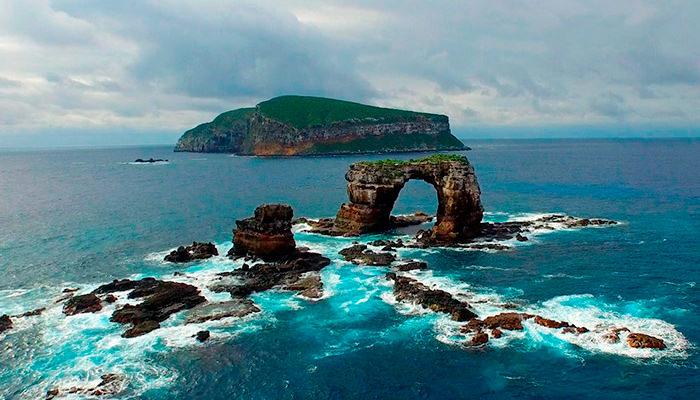
2. It holds the greatest concentration of marine sharks in the world.
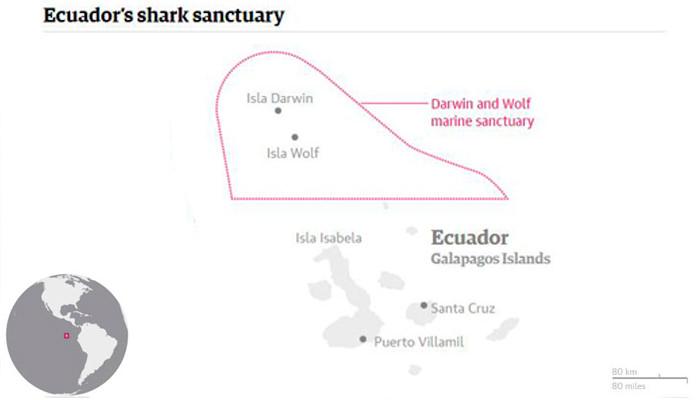
3. The Galapagos Marine reserve includes more than 34 different species of shark, including the largest shark species, the filter-feeding whale shark, the migratory hammerhead shark and the Galapagos shark.
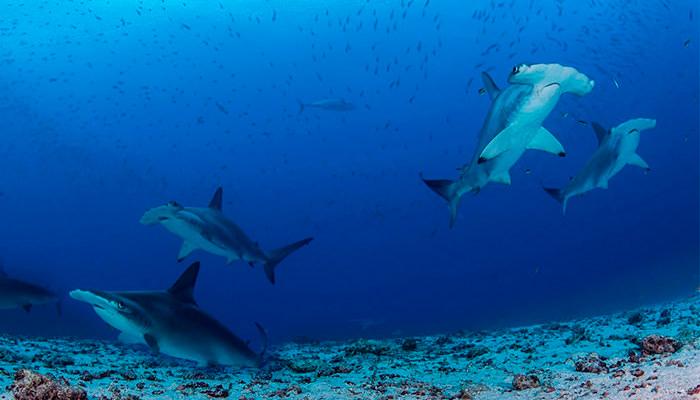
4. Shark populations around the world come here to rest and breed the new reserve will guarantee complete sanctuary for them.
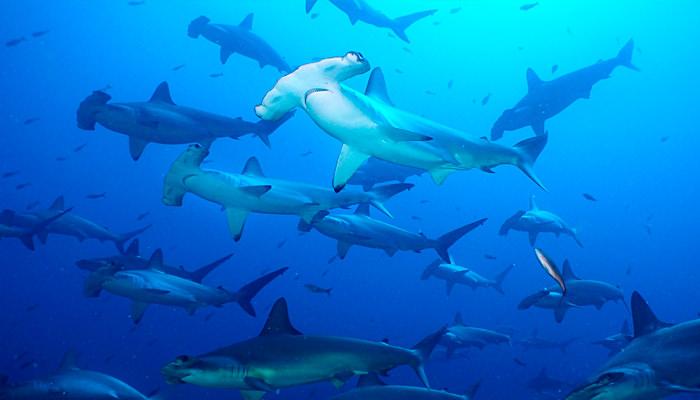
5. It is actually the combination of cold and warm ocean currents what makes this area in Galapagos one of the most bio-diverse marine habitats in the world.
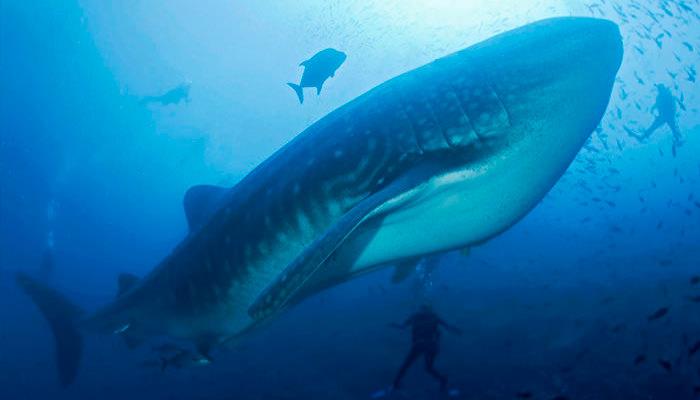
6. By the way, the tourism value of a shark over its lifetime in the Galapagos is US$5.4m (£3.75,) while a dead shark brings in less than US$200.
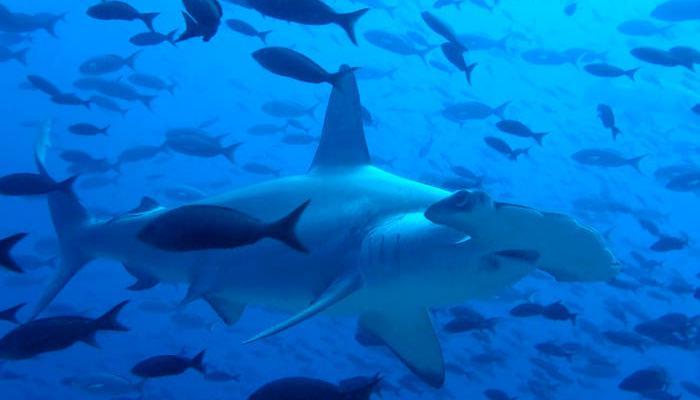
Here are some quick facts on both Wolf and Darwin island…
Wolf Island – Is found in the far north-west of the Galapagos archipelago, 350 km from San Cristobal. While there are many excellent dive sites around the main islands in the south, Wolf and Darwin together form the area around which all Galapagos diving liveaboards are based.
Darwin Island – In the north west corner of the archipelago this island is, together with nearby Wolf Island, the focal point of any dive trip to the Galapagos and the favorite area for high quality liveaboards.
So, what are you waiting for, get your diver back pack ready and submerge into this marine wonder.

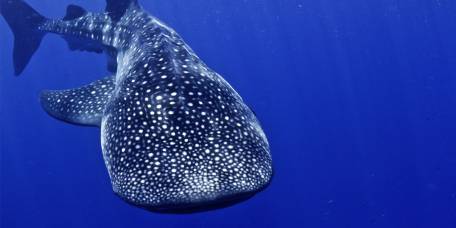

Comments